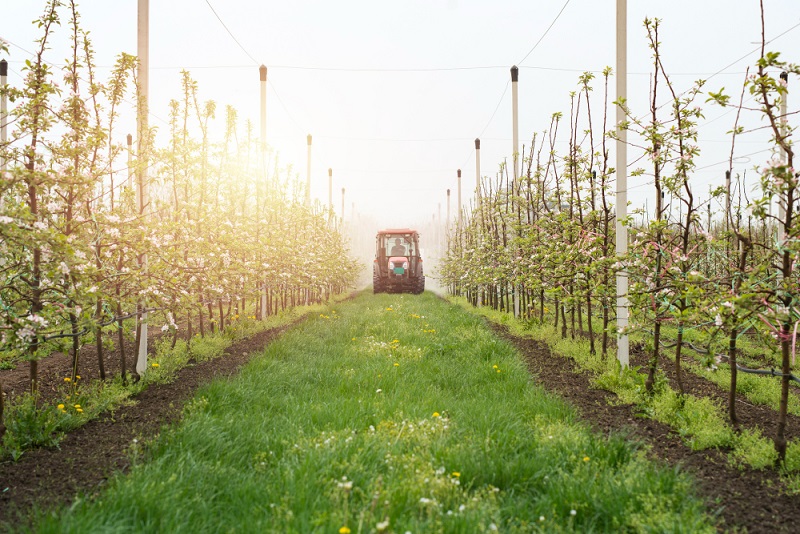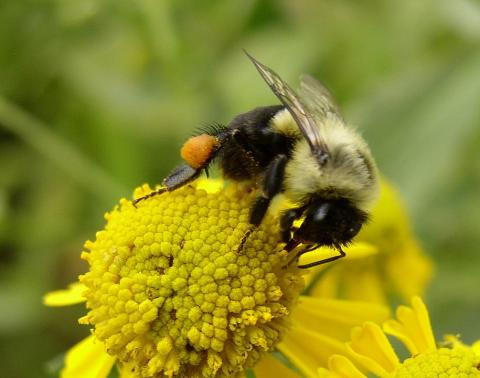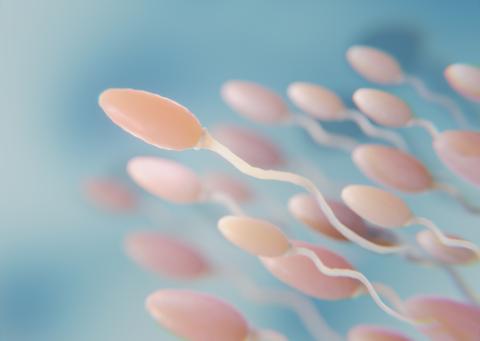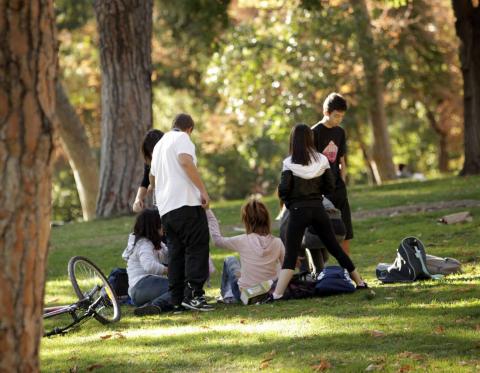Reactions: EU to renew glyphosate authorisation for 10 years
The European Commission will renew the authorisation of the pesticide glyphosate in the European Union for 10 years, subject to "new restrictions and conditions". Following EU procedure, the announcement was made after member states failed to reach the majority required to renew or refuse approval.

Lucía Argüelles - glifosato EN
Lucía Argüelles
Researcher at the Urban Transformation and Global Change Laboratory (TURBA Lab) at the Internet Interdisciplinary Institute (IN3) of the Universitat Oberta de Catalunya (Open University of Catalonia)
For me the decision is surprising, not because of the European Commission's continued support for the agrochemical industry and certain models of large-scale agriculture, but because it announced a renewal of the permit without the necessary majority [in the committee representing the member states] and also because it did so for 10 years (instead of five as last time)**. The decision to renew the glyphosate permit also contradicts the European Commission's intention to reduce pesticide use by 50% in 10 years as planned in the Farm2Fork programme, published in 2020.
Following the consideration of glyphosate as potentially carcinogenic by the IARC (International Agency for Research on Cancer, of the World Health Organisation) and some judgements against agrochemical companies for health problems of people derived from the use of glyphosate, together with the non-consensus within the member countries, the precautionary principle should have been applied.
The difference in voting among EU countries is not based solely on the belief in scientific studies and estimates. The main doubts of the member states are whether each country will be able to make a transition to a different type of agriculture without major economic losses and without massive anger on the part of farmers. In the current context of agriculture, with important demographic, socio-economic and ecological challenges, the regulation of pesticide use is a great opportunity to solve many problems at the same time, such as the precariousness of agricultural work, the lack of relief, the high environmental impacts or the low agricultural income. It is a mistake to treat pesticide regulation as an isolated element within the agricultural system and policy.
We cannot continue to poison ourselves, especially those people who use this pesticide directly, such as farm workers and farmers, or to pollute the environment and kill pollinating insects, on which we depend for food production. The future lies in a drastic reduction of pesticide use, and glyphosate is the most widely used pesticide in the world.
**Editors' note: Glyphosate was first authorised throughout the European Union in 2002. This approval was last renewed in 2017 for five years, followed by a one-year extension.
Rosa Porcel - glifosato EN
Rosa Porcel
Deputy Director of the Higher Technical School of Agricultural Engineering
Glyphosate is one of the most widely used herbicides in Spain and in the world for agriculture, forestry or as a treatment for railway or road infrastructures, as well as for the care of roads, parks and gardens in urban areas. The reason is simple: it is cheap because it is patent-free and, above all, it is the most effective and safest because it affects specific biochemical pathways in plants that are not present in animals.
To date, there are more than 800 studies and reports from official bodies and safety agencies around the world, in addition to EFSA and WHO/FAO, that conclude that glyphosate is unlikely to be carcinogenic to humans. Recall that in 2015, the WHO's International Agency for Research on Cancer (IARC) classified glyphosate as group 2A. This means that it is "probably carcinogenic to humans", just like professions such as being a hairdresser, working night shifts or eating red meat, none of which have been banned. The IARC's initial decision was shrouded in shadows from the outset, as it was discovered that the agency had omitted key information from its report, which never saw the light of day, that supported the safety of the product. The methodology used by the IARC was also called into question, along with possible conflicts of interest on the part of the assessment panel. Behind the campaign against glyphosate is its link to GM RR plants, resistant to glyphosate, which has been one of the most successful and is still the most widely used today. These plants are not grown in Europe, but are imported. The use of glyphosate allows direct sowing, with the consequent savings in inputs, fuel and less impact on the soil by avoiding ploughing.
All in all, this is good news for our farmers because to date we have no other product that is as effective and safe. Like any other chemical compound, it must be handled and used in accordance with the indications and regulations that govern it. We have independent agencies and bodies that look after our safety and that of other living beings and the environment. It should be remembered that many of the local councils that put obstacles in the way of its use have gone back to using it due to the lack of effective alternatives.
Pablo Gago - glifosato EN
Pablo Gago
Senior Scientist at the Institute of Environmental Diagnosis and Water Studies at CSIC (IDAEA-CSIC) and visiting professor at SLU Swedish University of Agricultural Science (Sweden)
Despite mounting scientific evidence suggesting possible risks to human health and the environment associated with glyphosate, the renewal of its authorisation reflects an unwillingness to seriously address these concerns.
The controversy surrounding the renewal of glyphosate is based on solid scientific evidence that has linked glyphosate to potential health and environmental risks. Several studies suggest links between glyphosate and a long list of diseases (including various types of cancer, diabetes or effects on foetal development), as well as negative impacts on biodiversity and soil quality. The persistence of this controversy points to the need for a more rigorous and up-to-date assessment of the risks associated with the continued use of this herbicide.
Renewal of the authorisation of glyphosate has the potential to have significant and negative consequences for public health and the environment. Ignoring concerns supported by scientific evidence about the potential risks associated with glyphosate indicates a lack of commitment to safety and sustainability. This decision could expose the population and the ecosystem to unnecessary risks and underlines the importance of evidence-based decision-making to ensure the long-term protection of human health and biodiversity.
glifosato - Mónica Martínez EN
Mónica Martínez Haro
Senior researcher in ecotoxicology
This is a complex and sensitive issue. In my research group, we have detected glyphosate residues in biological samples of wildlife in agricultural environments exposed to glyphosate and other chemical compounds. In general, plant protection products are products designed to generate toxic effects -mainly lethal- on certain organisms (called target organisms), and which can also trigger toxic effects -sub-lethal- on other organisms for which they have not been designed (non-target organisms). These effects have negative repercussions that can reach up to higher levels of biological organisation, such as the population level.
Through our studies, we have detected prevalences of glyphosate herbicide residues in the gastric contents of game much higher than those of other commonly used pesticides. This was largely to be expected due to the excessive use of this herbicide, both in Spain and in other countries. That is why I believe that, behind the glyphosate issue, there is a more important underlying problem: the continued increase in the consumption of phytosanitary products. In this sense, I believe that the most coherent approach would be to achieve a more sustainable regulation of the use of phytosanitary products, as well as the implementation of effective agro-environmental measures to limit and reduce their consumption over time - just the opposite of the trend that has been observed in recent decades throughout the world.



